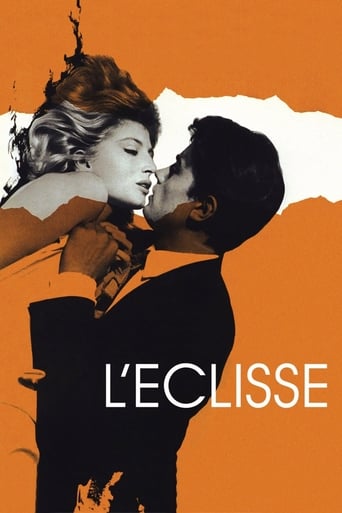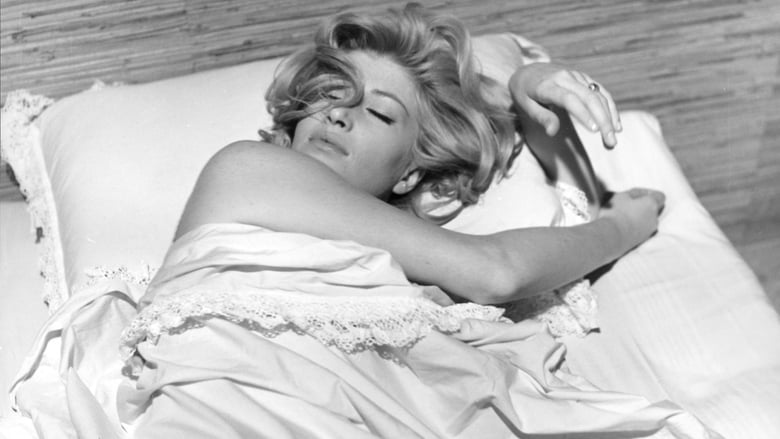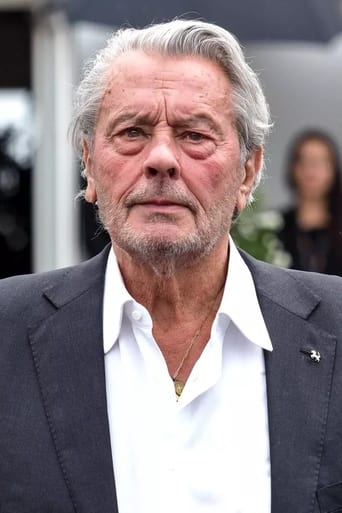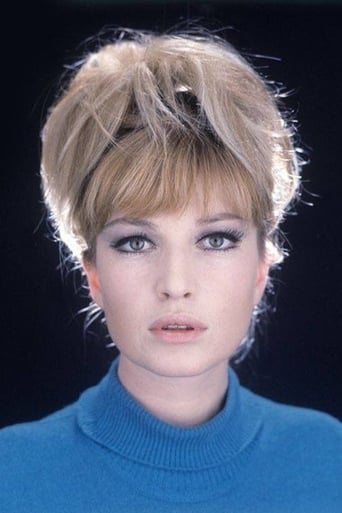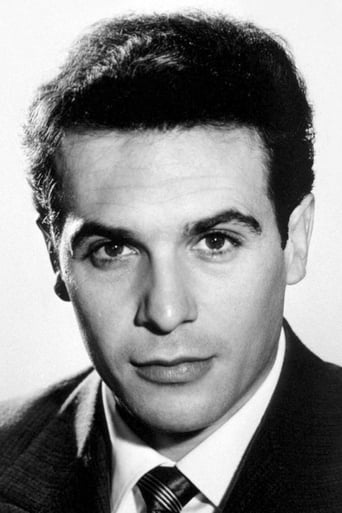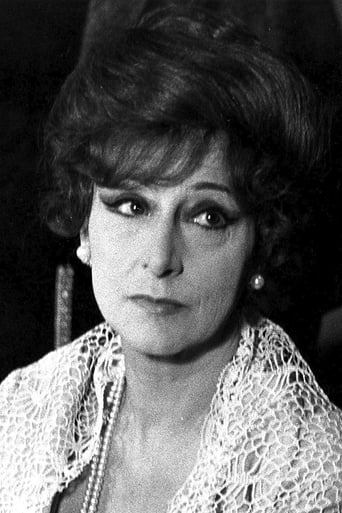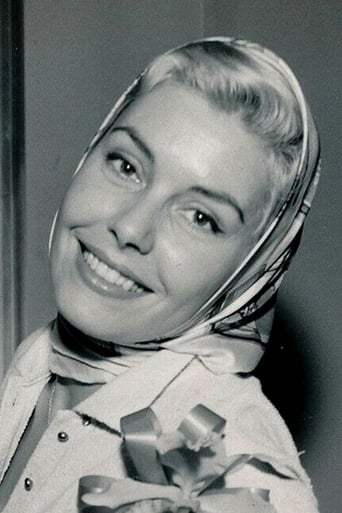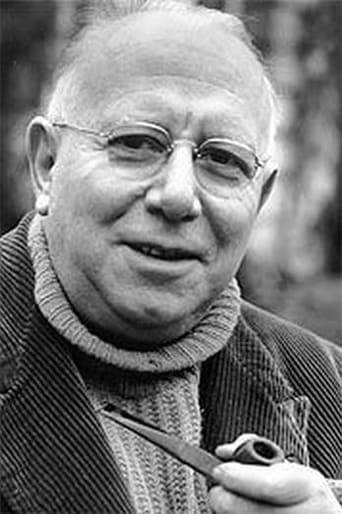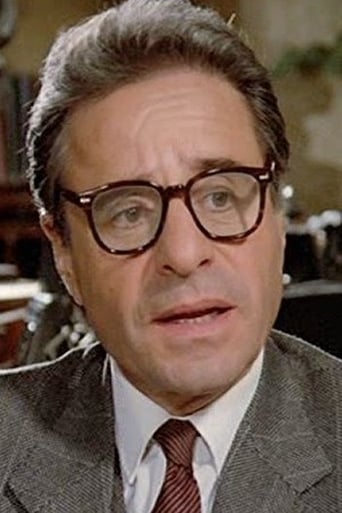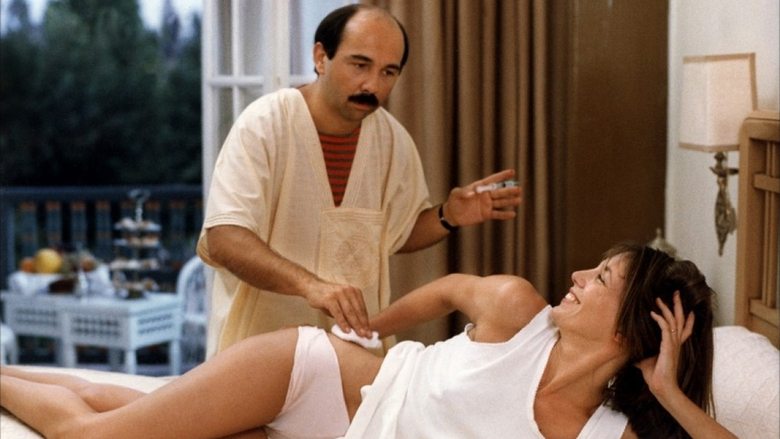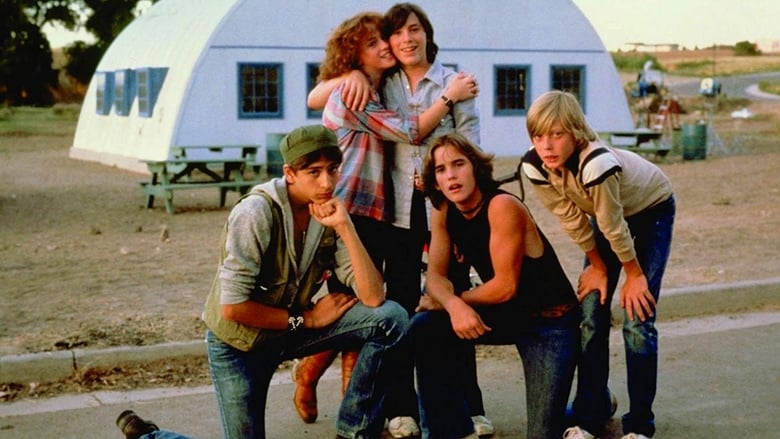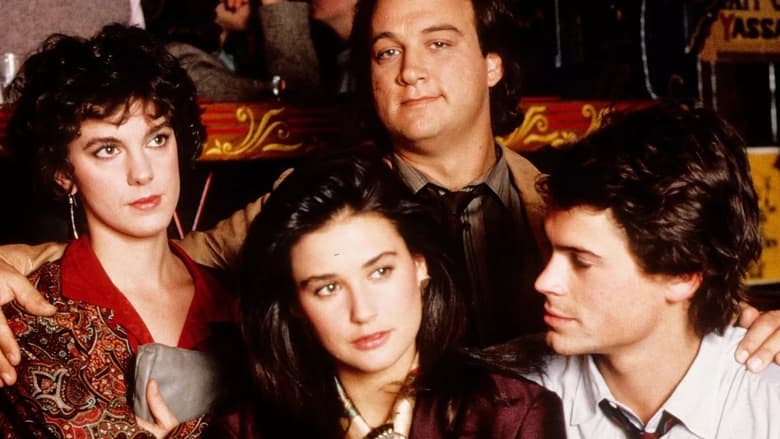This romantic drama by Michelangelo Antonioni follows the love life of Vittoria, a beautiful literary translator living in Rome. After splitting from her writer boyfriend, Riccardo, Vittoria meets Piero, a lively stockbroker, on the hectic floor of the Roman stock exchange. Though Vittoria and Piero begin a relationship, it is not one without difficulties, and their commitment to one another is tested during an eclipse.


Similar titles
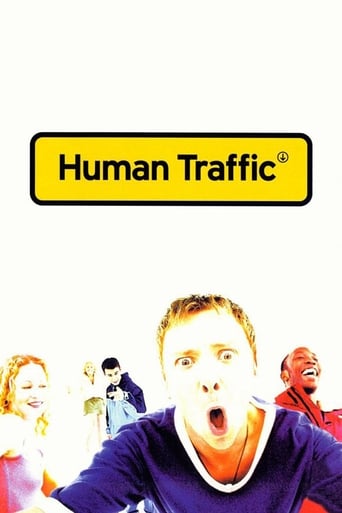
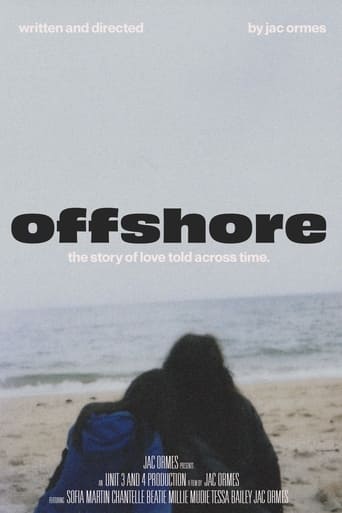
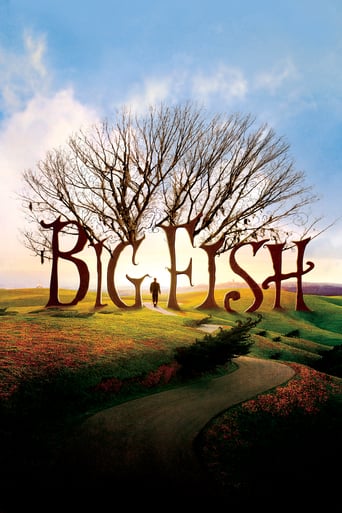
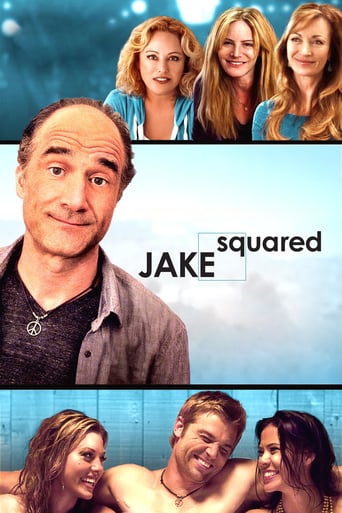
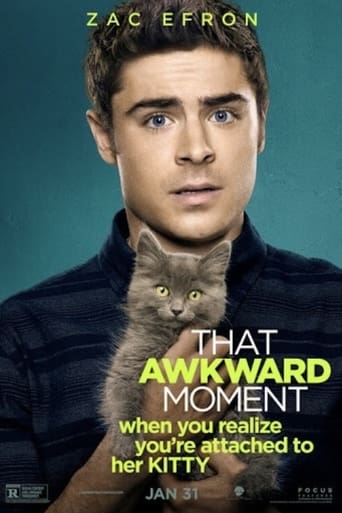
Reviews
I can only wonder how a country like Italy, which experienced such enormous loss of life and property in World War II, 17 years later was willing to finance a large number of complex and intelligent films like L'ECLISSE, which could not possibly do well at the box office.It is sad to see that the reflective, thoughtful movie is basically extinct these days, even in Italy, that land of culture, knowledge and beauty. It is, above all, a sad comment on the human mind which, at the zenith of its technological knowledge, is sadly losing touch with cinema that addresses inner issues such as L'ECLISSE does, namely the vagaries of love hand in hand with the thirst for materialism and sex, and the inexorable passing of time.Alain Delon is excellent in his portrayal of a stock exchange broker who, as Victoria (Vitti) points out, does not stop still but is constantly doing something to make money or to satisfy his lust. Vitti is beautiful and elegant beyond words, but never seems satisfied with those who fall in love with her, just as her mother is never satisfied with the money she makes - and loses - at the Stock Exchange. Love is as beyond reach for Vittoria as distant Kenya and the snows on the Kilimanjaro.Photography is superlative (especially the chiaroscuro of the more intimate moments between the leads); screenplay is solid enough to prevent the film sliding into pretentiousness, and to keep you interested, right up to the completely original and unique ending, reflecting the essence of life in all its indifference, inevitability - and passing of time.Early in the movie, there is a sequence at Verona aerodrome, Verona being the town of Romeo and Juliet. L'ECLISSE is nowhere near as tragic... but, as the saying goes, all is fair in love and war.Excellent as the two leads and supporting cast are, direction is sublime, allowing the spectator to sense the dynamics of relationships, and fill the gaps. Antonioni's direction shows him at the top of his considerable skills - only BLOW-UP would be (marginally) better.Naturally, in this age of constant change and fast tracking, few would waste time on a thought-provoking film - which is a pity, as it is bound to further erode the audience's level of exigency, and the quality of current movie-making.Grazie mille, Michelangelo!
"I was 15 when I first saw Antonioni's L'eclisse. It was screened for only one afternoon at the Tooting Classic. I skipped school games to go and see it and as a result got slapped into a two-hour detention. The impact the film had on me in 1963 was devastating. It was unlike anything else I had seen, and it seemed to describe the kind of world into which we were moving - it was almost science fiction.L'eclisse was made some months before the Cuban missile crisis and my memories of it are strongly liked to that terrifying week of nuclear brinkmanship. I think that a premonition of a looming, unidentifiable catastrophe was what made the movie so disturbing.It is difficult to communicate just how frightening that October in 1962 was at the time. We all lived under the threat of obliteration, the end of everything, fine. Subsequent international crisis no longer felt so remote, each one could take the world to the brink again, and this time some maniac might press the button.Antonioni's film was the first I saw that seemed to be made with acute awareness that the old myths, however comforting, were no longer adequate. It eschewed all certainties of characterisation, dramatic intent and narrative resolution. It was altogether a different sort of movie - it felt 'modern', its very fabric disturbed by an uncertainty that could now be said to underlie everything.This is not to reduce L'eclisse to being 'about' the nuclear threat (although a newspaper headline 'The Atomic Age' appears as part of a montage during the film's climax, and is especially unsettling). Trying to describe what the film - or any other work by Antonioni - is about, is not a simple task as it can't be reduced to a plot synopsis, although it is definitely preoccupied with the narrative space between events, actions and intentional dialogue.The opening scene is a long sequence set in an apartment showing two lovers, Vittoria (Monica Vitti) and Riccardo (Francisco Rabal), at the end of a love affair. Worn out from talking all night and past the point of having anything further to say, they are unable to make the definite break.Most films, I believe, would shoot the action prior to this - the night itself - but Antonioni is a director who focuses on what the films leave out. Much of this scene is without dialogue. As it progresses, we increasingly become aware of an electric fan and, later, a razor. These objects, which in other movies would provide background noise, become, under Antonioni's direction, extraordinarily highlighted.He is one of the most sensitive filmmakers to the use of sound; aircraft propellers, car engines, ringing telephones, opening and closing of doors, footsteps on stone floors, all carry weight, not for any pointed narrative purpose, but as evidence of the technologies we communicate with, the machines we travel in, the cities we inhabit and adapt to.There is a story in L'eclisse, but its emphases are elsewhere than usual. Monica Vitti leaves the apartment and begins a walk that lasts, in a way, for the majority of the film. Her journey is without any particular destination, a series of detours, explorations and, most importantly, distractions. These distractions are the substance of the story and include a brief relationship with Alain Delon.A characteristic Antonioni sequence is the flight in a small four-seater plane from Rome to Verona during which we listen in to a virtually inaudible conversation. Nothing happens in the conventional sense: the journey, which takes considerable film time, appears to have no dramatic content. As with Vitti's character, the film has a wandering, searching quality. Antonioni has been described as 'the poet of alienation', and this is shown by Vittoria's detachment from the world - which may be interpreted as either a sign of health or equally of neurosis.There are two sequences, both set in the Borsa (the Rome stock exchange), which constitute the hub of the film. This is the world inhabited by Alain Delon's character Piero, a young stockbroker. It is observed with an anthropological eye for detail. Only in the stock exchange are people shown to be full of passion, energy and action; it is an emphatically male world, preoccupied with money, profit and deals, and one in which Delon is comfortable.Duration is an important component of Antonioni's style (the park in Blowup, the desert in Zabriskie Point, the rocky island in L'avventura, the space outside the hotel at the end of The Passenger). He films the Borsa with relentless curiosity, as if to say, 'look long enough and perhaps this place may reveal something of itself.'If the narrative finds its organisation around the brief affair between Delon and Vitti, it is something of a shock when both characters simply slip out of the film altogether. The final time the couple are seen together, they make arrangement to meet on a street corner. Neither one turns up, but the camera does. For a full seven minutes it records the world that carries on without them. Passers-by, seen in earlier scenes, take their regular walks; buses pull up, stop, drop passengers and drive on. Twice a person who might be Monica Vitti or Alain Delon turns out to be someone else. The streets empty and darken as day turns to dusk.This is an extraordinary sequence, acknowledging that it has lost both the original characters and the narrative. Other lives, which we know nothing about, cross the screen and disappear, leaving in the end just the city - functioning, automatically, part of a vast man-made machinery, within which individuals find temporary escape and pleasure in passing sensations of motion and contact. It is a chilling viewpoint."Ron Peck, Sight & Sound, December 1994
Billed as the last episode of Michelangelo's unofficial "Incommunicability Trilogy", after L'avventura (1960) and La notte (1961), the film's structure is as elusive as the latter part of L'avventura (a 6/10), while the pathos is not as empowering as La notte (a 8/10). As a result a in-between score of 7 out of 10 is my rating. It's an elliptical essay about a mental plight of a woman's inner state, Michelangelo uses plentiful close-ups to enhance a visceral image of the troubled soul of our protagonist Vittoria (Monica Vitti), and the nihilistic struggle of any frayed individual is so incisive as that one can not get out of its grip afterwards. It's inherits the energizing effect of suffering on character, particularly female character throughout the trilogy, Antonioni's muse Monica Vitti exposes herself without any lines of theatrical rendering, her emotion inward is lumbering and stressful to viewers, which could be divined as the auteur's intention. Her counterpart, a youthful Alain Delon though billed first, is underplayed, emits very limited evocation compared to Vitti.The tumultuous control of the stock market scenes is an emblem of Antonioni's remarkable progress of character introspection under a social context (almost harks back to Hollywood luminary Frank Capra's expertise). Nearly without any score, a bleak realistic setting with deployment of the natural sound again testify that Antonioni is the backbone of New Wave movement not only in Italy but also in the whole planet! The commitment to beauty, grace and sensitivity is by and large foregrounded. A marvelous almost 8-minutes-long non-relevant ciphers montage ending is unexpected mesmerizing, and the ending scene of the radiation of street lights converges into a quasi-eclipse phenomenon delivers an impeccable finale for the film and the trilogy, an incommunicatively mundane world alone can be an endless source for filmmakers to excavate!
Going backwards through Antonioni's films, I encounter what is with the exception of Blowup his most famous film, one of the cornerstones at least. Forty years after it was made it stands as a prophecy of minimal cinema to come, an early configuration of what is possible to do with a certain kind of story, but sadly not much more.I like how he renders the morning after a painful breakup, with anguish and irritation in empty streets, but also with the aimless excitement of newfound freedom and time. Monica Vitti fills this time that would have been consumed before with the affairs of a relationship by strolling around, the world now a game of possibilities, where the lack of purpose and direction hold their own allure. Life can be anything again. This is not an opportunity to meditate though, but rather of becoming open again to the flow of life, see where desire will sweep us to.Summer is a character here, indeed in a way that prefigures the transparent realities that would emerge in Antonioni's later films, I can sense poignantly the hot languid mood of summer life in the city, at once inviting and arresting movement. But the romance that is supposed to carry the film after the world has been sketched is not up to the task. The two partners feign, thrust, fall in love, coy or anxious or excited, then withdraw. The flow of life doesn't stop for the dead and it does't stop for the lovers. Two scenes connected by the incessant ringing of telephones connect this. Perhaps the romance is not up to the task because Antonioni believes that love isn't, that the two partners brought close in communion are still worlds apart and love alone cannot hope to bridge the distance. We get the first inklings of the emptiness of desire, Antonioni would perfect this in his following film.The importance of all this is perhaps that in 1962 it was desirable to see a love story done this way. The novelty alone was thought enough to vindicate the experiment.But when Antonioni feels free to be as New Wave as he wants in the finale, the film soars. The symbolism of a barrel of water that represents something running out deafens the ears amid all the silence - it says too much and too little. But that silence of shots deserves to be admired, more Japanese than French.
